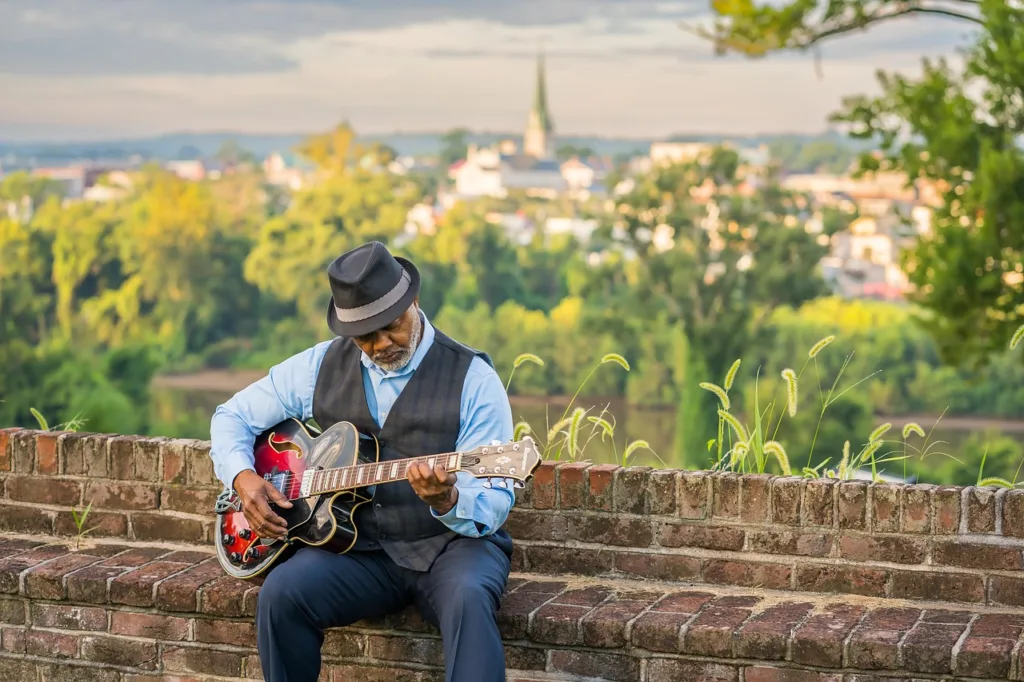
Music is a universal language that transcends age, culture, and even time. For many seniors, music is more than just entertainment—it’s a powerful tool for emotional expression, cognitive stimulation, and connection. Whether it’s a favorite tune from childhood or a calming classical melody, music has the extraordinary ability to unlock memories, uplift spirits, and improve overall well-being. This article explores the healing power of music for seniors, with a particular focus on its connection to memory and mental health.
Why Music Matters as We Age
As people grow older, they often experience significant life changes—retirement, the loss of loved ones, declining health, and shifts in routine. These transitions can lead to feelings of isolation, sadness, or even cognitive decline. Music can serve as a comforting and familiar presence, offering emotional relief and cognitive benefits.
Neurological studies show that music engages multiple areas of the brain, including those linked to memory, emotion, and movement. In fact, musical memories are often preserved even when other cognitive functions decline. This is why a song from decades ago can instantly transport a senior back in time, bringing forth vivid images, emotions, and experiences. Moreover, it helps to stay mentally sharp.
Music and Memory: What the Research Says
Scientific research continues to affirm the deep connection between music and memory. According to the Alzheimer’s Association, musical memories often remain intact even in the later stages of Alzheimer’s disease because the brain regions associated with musical memory are relatively unaffected by the disease.
A notable study published in The Journal of Prevention of Alzheimer’s Disease found that personalized music playlists helped patients with dementia reconnect with their environment, improve communication, and reduce behavioral issues. Music therapy sessions have been shown to trigger autobiographical memories, helping seniors recall names, places, and past experiences.
Programs like Music & Memory use these findings to great effect. By providing personalized music playlists to individuals living with cognitive impairments, these programs have helped thousands of seniors rediscover joy and improve their quality of life.
Emotional and Psychological Benefits
Music is deeply tied to emotion, and its ability to uplift and soothe is well documented. For seniors, listening to or making music can lead to numerous psychological benefits:
- Reducing Anxiety and Depression: Music with a calming tempo can help decrease cortisol levels (the stress hormone) and promote relaxation. Singing or listening to uplifting songs can also boost dopamine, the brain’s “feel-good” chemical.
- Improving Mood: Music can brighten a senior’s day, especially when it evokes happy memories or favorite moments from the past. Even passive listening can elevate mood and reduce feelings of loneliness.
- Enhancing Communication: Seniors with speech difficulties or memory loss may find it easier to communicate through song. Music therapy encourages expression through rhythm, melody, and lyrics, offering an alternative pathway to connect.
Physical Benefits of Music Engagement
The benefits of music aren’t limited to memory and mood—they extend to physical health as well. Here’s how:
- Boosting Motor Skills: Clapping along to music, dancing, or even gently tapping feet can help seniors with coordination and movement, especially those recovering from strokes or dealing with Parkinson’s disease.
- Regulating Sleep: Listening to calming music before bedtime has been shown to improve sleep quality—a major concern for many older adults.
- Encouraging Physical Activity: Upbeat music can motivate seniors to move, stretch, or engage in light exercises, improving circulation and joint mobility.
Music as a Social Connector
Music has the power to bring people together. Whether it’s group sing-alongs, music therapy sessions, or live performances, these experiences foster a sense of community. Sharing musical preferences or singing familiar tunes can help seniors bond with others, reduce feelings of isolation, and build meaningful relationships.
For families and caregivers, music provides a beautiful way to connect with loved ones who may struggle with conversation. A shared song can break through barriers of silence and reestablish emotional connections.
How Seniors Can Incorporate Music into Daily Life
1. Create a Personal Playlist
Start by making a playlist of favorite songs from different stages of life. Include upbeat tracks, calming melodies, and tunes that evoke special memories. Personalized music has the strongest emotional and cognitive impact.
2. Join a Music Group or Choir
Many community centers and senior facilities offer music groups or choirs. These provide a great opportunity to socialize, have fun, and engage the brain through singing.
3. Explore Music Therapy
Certified music therapists can tailor sessions to individual needs, whether to reduce anxiety, stimulate memory, or improve speech. Organizations like the American Music Therapy Association can help locate therapists nearby.
4. Attend Live or Virtual Performances
Many orchestras, bands, and local musicians perform at community events, nursing homes, or online. These concerts are an enjoyable and stimulating way to experience live music.
5. Play an Instrument
It’s never too late to start. Learning or revisiting an instrument—no matter how basic—can be incredibly rewarding and stimulating for the mind.
Real-Life Story: The Power of One Song
Eighty-seven-year-old Margaret, who lives with moderate Alzheimer’s, often struggles to recall the names of her children. But when her favorite song from the 1950s, “Que Sera, Sera,” plays, her eyes light up, and she sings every word flawlessly. For those few minutes, she’s back in her youth, smiling, tapping her hands, and connecting with the world around her. Stories like Margaret’s are powerful reminders that music can reach us in ways nothing else can.
Conclusion
Music is more than just a pleasant pastime—it’s a lifeline for memory, a balm for the soul, and a bridge to connection. For seniors, music can rekindle memories, improve mood, support brain function, and bring moments of profound joy. Whether through listening, singing, or creating, music invites us all to reconnect—with ourselves, with others, and with the stories that shape our lives.
As research and programs like Music & Memory continue to demonstrate, a simple song can truly change a life. So press play—and let the healing power of music begin.
